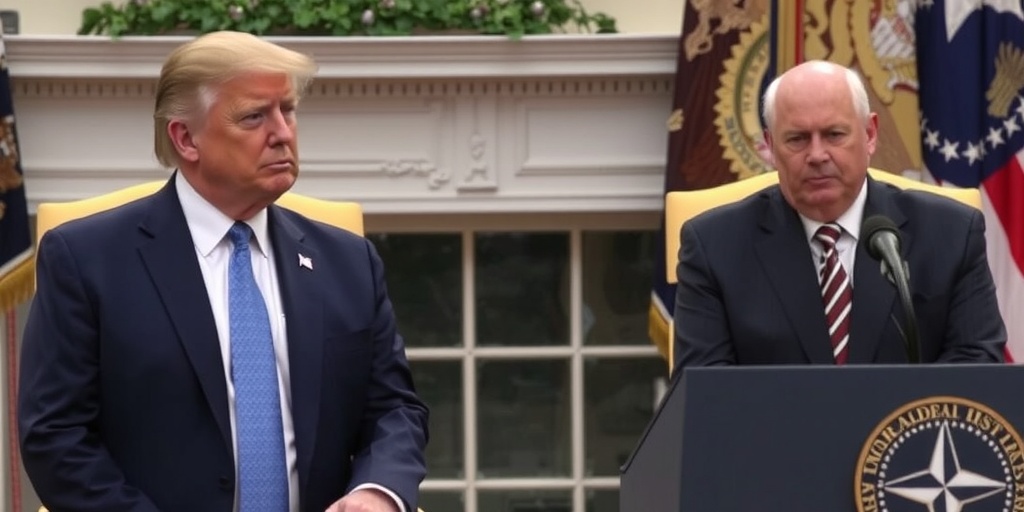Now Reading: David Boren, Former Oklahoma Governor and Senator, Dies at 83
-
01
David Boren, Former Oklahoma Governor and Senator, Dies at 83
David Boren, Former Oklahoma Governor and Senator, Dies at 83

David L. Boren, Former Governor and U.S. Senator, Dies at 83
David L. Boren, a distinguished and reform-minded figure in American politics who served as governor of Oklahoma and later as a U.S. senator, passed away on Thursday at his home in Norman, Oklahoma. He was 83 years old. The news of his death was confirmed by his attorney, Clark Brewster.
Born into a politically active family, Boren was the son of Lyle H. Boren, an Oklahoma congressman. His academic prowess was evident early on as he became a Rhodes Scholar, leading him to a remarkable political journey that began as a state legislator from 1967 to 1975. In 1975, he became the youngest governor in the United States, serving until 1979. He then represented Oklahoma in the U.S. Senate from 1979 until 1994, where he gained recognition for his leadership, particularly as the longest-serving chairman of the Select Committee on Intelligence.
Boren’s governor campaign in 1974 was marked by the formation of a 5,000-strong grassroots movement known as the "Boren Broomstick Brigade," which symbolized his commitment to sweeping away the political establishment and implementing robust reforms. During his time in office, he initiated significant tax reforms, reduced state income taxes, abolished inheritance taxes for surviving spouses, and improved the state’s troubled prison system. His emphasis on public education helped boost funding for gifted students and led to the dissolution of roughly 100 state agencies, commissions, and boards through sunset laws.
His political career is particularly notable for the era of bipartisan cooperation he fostered. A centrist, Boren often allied with prominent figures from both parties. He worked closely with Democratic President Jimmy Carter and Republican Presidents Ronald Reagan and George H.W. Bush on various issues, including tax reforms and campaign finance reform aimed at curbing the influence of affluent donors. Boren’s tenure on the Senate Intelligence Committee allowed him to influence critical foreign policy decisions. He played a key role in enacting sanctions against South Africa as a response to apartheid, and he was instrumental in the international movements that led to Nelson Mandela’s release from prison in 1990.
In 1994, Boren resigned from the Senate to assume the presidency of the University of Oklahoma, a position he held until 2018. His leadership at the university was marked by rising enrollments, increased scholarship opportunities, and the introduction of innovative academic programs. His tenure was not without its controversies, as he made headlines in 2015 for his decisive action to close the campus chapter of Sigma Alpha Epsilon following the emergence of a racially charged video involving fraternity members.
Throughout his time in academia, Boren remained connected to national politics. Speculations arose in 2007 regarding a possible third-party presidential run alongside New York Mayor Michael Bloomberg. Ultimately, Boren endorsed Senator Barack Obama in the 2008 presidential election. Obama later appointed him co-chairman of the President’s Intelligence Advisory Board, further demonstrating Boren’s ongoing influence in the national political landscape.
However, Boren’s legacy faced scrutiny in 2019 when allegations of sexual misconduct emerged from a reported incident involving a former student who accused him of unwanted advances. The claims were investigated, but ultimately did not result in criminal charges or civil litigation. Boren’s legal team denied the accusations, asserting that he had no record of inappropriate behavior.
A native Oklahoman born on April 21, 1941, Boren grew up in a politically active household. He attended Yale University, where he excelled academically, before embarking on his political career. Boren’s early experiences in the Oklahoma House of Representatives paved the way for his later successes as both governor and senator.
With a career in public service spanning more than five decades, Boren was remembered for his principled advocacy for education, tax reforms, and his efforts to bring people from differing political backgrounds together. He leaves behind his wife, Molly W. Shi, two children from his first marriage, and several grandchildren, along with a legacy of service to the state of Oklahoma and to the nation.
In his final years, Boren remained outspoken about the challenges facing the country, warning against the dangers of political polarization and the corrosive impact of money on politics in his 2011 book, “A Letter to America.” Boren’s life and career reflect a commitment to leadership that transcended partisan divides, making him a revered figure in American political history.
Stay Informed With the Latest & Most Important News
Previous Post
Next Post
-
 01New technology breakthrough has everyone talking right now
01New technology breakthrough has everyone talking right now -
 02Unbelievable life hack everyone needs to try today
02Unbelievable life hack everyone needs to try today -
 03Fascinating discovery found buried deep beneath the ocean
03Fascinating discovery found buried deep beneath the ocean -
 04Man invents genius device that solves everyday problems
04Man invents genius device that solves everyday problems -
 05Shocking discovery that changes what we know forever
05Shocking discovery that changes what we know forever -
 06Internet goes wild over celebrity’s unexpected fashion choice
06Internet goes wild over celebrity’s unexpected fashion choice -
 07Rare animal sighting stuns scientists and wildlife lovers
07Rare animal sighting stuns scientists and wildlife lovers





















